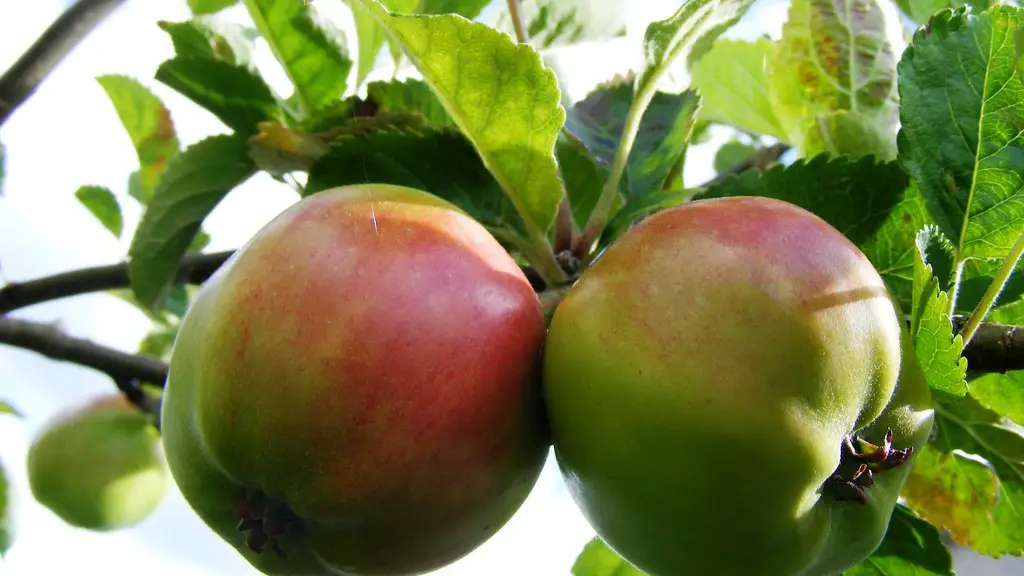Taking care of a lemon tree is an immensely rewarding experience, as it is a rewarding part of garden landscaping. It is essential to supply your lemon tree with the right amount of water to ensure healthier growth and more fruitful harvest. With that said, how often should you water your lemon tree?
Firstly, water your lemon tree when the topsoil is dry and the leaves start to droop. A lemon tree needs approximately an inch of water per week, although this can vary depending on climate and soil conditions. You should then adjust the amount of water you give your tree accordingly. The goal is to keep the soil consistently moist, but not saturate it.
Secondly, when you water your lemon tree, be sure to water it deeply and slowly. Watering the roots thoroughly will encourage them to grow deeper into the soil, resulting in a sturdier and healthier tree. Make sure to water evenly so all parts of the tree are adequately watered, and avoid spraying and running water on the leaves, as this reduces the tree’s chance of absorbing the water.
Thirdly, during particularly warm and dry periods you may want to increase the amount of water your lemon tree receives, adding extra 1/4 inch to the one-inch weekly recommendation. Conversely, if the tree is planted in a very shady area, reduce the frequency by one-third. Remember that these parameters are all dependent on soil type, area climate and season.
Fourthly, keeping an eye on the surrounding environment is also essential for watering your lemon tree. If the temperature is extremely high, your tree will require more frequent waterings, but if it has rained recently, maybe you should take a break and let the tree absorb the moisture.
Finally, it’s also important to note that trees planted in containers will need a more frequent watering schedule, as they have limited access to nutrients and are prone to drying out quicker. However, monitoring the moisture level by hand should be enough, as containers have good drainage. You should also frequently check the leaves for signs of wilting or dryness.
What To Consider When Watering A Lemon Tree
Watering your lemon tree is not only about how much water it is receiving and how often it is being watered, but also about when the best time to water is and where the water should go. The most important thing to remember when it comes to watering is to water your tree at the base and avoid wetting the leaves as much as possible.
The best time of day to water your lemon tree is in the morning, before the heat of the day sets in. This will give your tree the best chance of absorbing the most water, as well as avoiding evaporation due to the warmth of the afternoon sun. You should also ensure that you water at the base of the tree and direct it towards the root system.
Watering your lemon tree too much can be detrimental to its health, as too much water can drown the roots and saturate the soil, preventing the tree from getting enough oxygen. Ideally, the soil should remain moist, but never soggy or saturated. A good way to determine the soil moisture level is to stick your finger in the soil; if it feels damp, then you should wait until it is a bit drier before watering.
You should also check for any debris or weeds that may be blocking the water from draining away from the tree’s roots, as these can cause the water to pool and cause root rot. As well as this, making sure the soil is not compacted will help water reach the roots faster and easier.
In addition, ensuring your tree is mulched with organic matter will help retain moisture in the soil, which in turn means your lemon tree won’t need to be watered as often. The mulch will also improve the soil structure, allowing oxygen to circulate better and helping to keep the pH levels in balance.
Tips For Stress-Free Watering Of Your Lemon Tree
Regardless of the season, there are some general tips to keep in mind when it comes to watering your lemon tree. Firstly, installing a sprinkler system or an automated drip system is a great way to ensure your tree stays hydrated without having to manually water it every day. This type of system is also great for conserving water, as it monitors how much water the tree is receiving and only dispenses what is necessary.
Using a soil moisture meter is also an effective way of determining the soil’s moisture levels, as they measure the water content in the upper layer of soil. The readings will indicate when your lemon tree needs water, making it much easier to water the tree at the right time.
Applying a liquid fertilizer during the growing season will also ensure your tree gets the right nutrients it needs. This should be done in addition to regular watering as fertilizer helps to balance the soil pH, improve water retention and enhance the growth of your lemon tree.
Finally, you should also keep an eye out for pests and diseases, as these can cause your lemon tree to become stressed and require more frequent waterings. Addressing these issues promptly will help keep your lemon tree healthy and thriving.
Factors That Determine The Water Requirements Of A Lemon Tree
When it comes to watering your lemon tree, soil type and climate play a huge role. If your tree is planted in sandy soil, then it will likely need to be watered more often, as this soil has less water retention than other types. Similarly, if your tree is planted in soil that is heavy in clay or organic matter, it will require less frequent waterings, as these soils have better water retention.
The climate of the area in which your lemon tree is planted can also affect the tree’s water requirements. For example, if you live in a hot and dry region, the tree will need more frequent waterings, while in humid regions, the tree may require less. It’s best to get an understanding of your local climate and adjust accordingly.
Finally, you should also consider the size of the tree and the type of container it is planted in. If the tree is planted in a container, it will need more frequent waterings, as the root system has limited access to nutrients and the soil is prone to drying out much quicker. On the other hand, larger trees will require less frequent waterings and more water when given.
What To Do When The Lemon Tree Isn’t Getting Enough Water
If you’ve been watering your lemon tree, but you notice it is still wilting or the leaves are starting to yellow, then the tree isn’t getting enough water. To remedy this, increase the frequency of watering and the amount of water being given. If the tree is planted in a container, it may need to be watered every two to three days.
In addition, you should keep an eye on the weather, and if the temperature is high and there are periods of intense rain, make sure to adjust the amount of water you give your tree so it can absorb the extra moisture it needs. Mulching around the base of the tree can also help with water retention and keep it from drying out too quickly.
Finally, if you’re still not seeing any improvements in the health of your lemon tree, consider giving it a deep soak. This involves giving the tree a good soaking, either with a hose or a dripper, until the water runs out of the bottom of the container. This helps ensure that no water is lost due to evaporation, and that it actually reaches the roots.
To Summarize
Taking care of a lemon tree is rewarding and the key to a successful harvest is in the watering. Firstly, water the tree when the topsoil is dry and the leaves start to droop, but make sure to adjust the amount accordingly depending on soil type, climate and season. Water deeply and patiently and keep an eye on the surrounding environment for potential adjustments. Secondly, when watering, go for the base of the tree and avoid wetting the leaves. The best time of day would be in the morning before the heat of the day sets in. Thirdly, be aware of how much you are watering, as too much can drown the roots and too little can leave the root system thirsty. Finally, consider setting up a sprinkler system for your tree and apply a liquid fertilizer during the growing season for extra nourishment. Overall, monitoring the environment and following these guidelines should help ensure a healthy and happy lemon tree.



